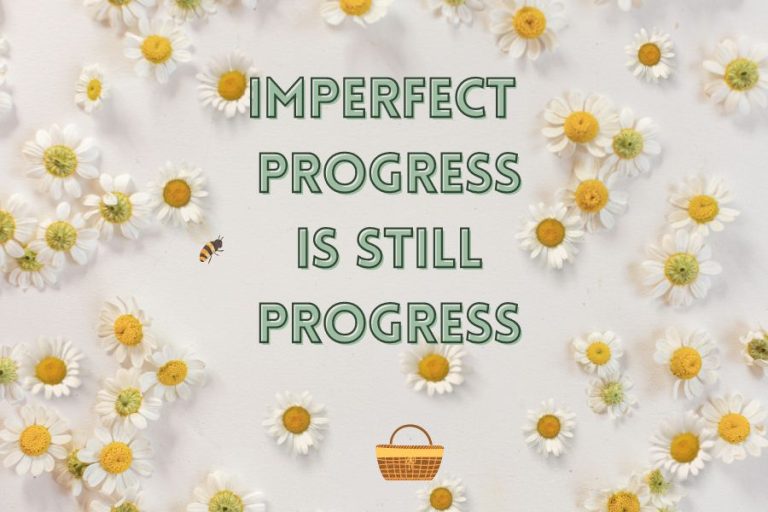7 Types of Rest You Need for Optimal Health
This post may contain affiliate links. View our disclosure policy here.
There is more to rest than the kind you get when sleeping in your bed and we actually need all the types to reach optimal health! The 7 types of rest you need for optimal health are physical rest, mental rest, emotional rest, sensory rest, social rest, creative rest, and spiritual rest. They can overlap but they are all different and each area of rest needs addressed to achieve your best health. So get a cup of herbal tea or a glass of water and take a little rest right now from your busy schedule and find out more!
What are the 7 Types of Rest You Actually Need?
Physical Rest
Physical rest is the type of rest that we are most familiar with. In fact I’ve addressed sleep issues in several posts including this one on magnesium. Physical rest is what we do when we give our bodies a break from physical exertion and allow it to recover. This includes sleeping our 8 hours a day or whatever is necessary for your body as well as taking breaks during work or engaging in low-intensity exercises such as stretching and yoga.
Mental Rest
Mental rest involves giving your mind a break. Let’s face it, Today’s world gives us constant stimulation. Your brain is being stimulated by the screen you are probably reading this on right now. Mental rest gives us rest from that constant stimulation and cognitive tasks. This rest can be achieved through such activities as meditation, prayer, deep breathing exercises, or simply taking some quiet time doing something that brings you complete relaxation and the ability to unwind.
Emotional Rest
Emotional rest focuses on relieving emotional stress and helps us find emotional balance. Activities that help us achieve emotional rest include journaling, talking to a close, trusted friend, therapist or priest, as well as practicing general self-care and activities that bring you much joy.
Sensory Rest
Are you like me? Can your senses become overwhelmed easily? Almost daily? Almost hourly? We need to give our senses moments of rest as well. Our senses can become greatly overloaded with stimuli from the environment leading to great fatigue. Our environment includes our living and work space, sounds, textures, lights, colors, and even the people that we live with and bring us joy. Sensory rest involves doing your best to minimize your exposure to excessive noise (or picking sounds that are soothing rather than annoying), bright lights, and other sensory inputs. Some ways to do this is to spend time in nature, take breaks at work to step outside, limit screen time, taking a soothing bath or shower, and creating a calm environment in your home that has low impact on your senses.
Social Rest
Social interactions can be enjoyable and energizing. At the same time they can be downright exhausting. Social rest means taking a break from socializing to recharge. Some of us need more social rest than others and that’s okay. It doesn’t mean you don’t love your friends and family. It means you are overwhelmed by the interaction. Your brain and body need you to make a conscious effort to rest from those types of events. So social rest may include making sure you have time to yourself daily, setting boundaries with others, or engaging in more quiet time that’s less interactive. Have you read Boundaries by John Townsend and Henry Cloud?
Creative Rest
Even people who are highly creative need a rest from this aspect of their lives. For anyone engaged in creative pursuits, it’s still important to allow your mind time and ability to rest and recharge. Take time to step away from the creative process and engage in other activities that inspire you: take a walk in nature, visit a museum, read a book just for pleasure, sit on a blanket in your yard and listen to the birds.
Spiritual Rest
Spiritual rest involves nurturing your inner self as well as connecting with God. This type of practice may involve extra prayer time or reading scripture, meditation of some sort, attending Liturgy or other religious services, spending time with God alone in nature, or engaging in other activities that align with your spiritual beliefs.
Why Do You Need All 7 Types of Rest?
It is important to include all 7 types of rest into your lifestyle. As you are putting together or working on your wellness basket, consider all 7 types of rest. You absolutey must address all 7 types of rest to achieve the following:
- avoid burnout
- feel recharged
- replenish your body, brain, and spirit
- to heal health problems
- to strengthen your immune system
- to recharge your brain function
- to achieve optimal health
How to Practice the 7 Types of Rest
At first, it may seem overwhelming. How can you possibly achieve all 7 types of rest in a week, let alone a day. You might not be able to do it every single day. But I think you CAN achieve them most days if you stay aware and mindful of the fact that many of them, do indeed, overlap.
For instance, did you notice that time in nature covered several of them? Even if you live or work in a larger city, city parks and some rooftops offer some nature resources. Taking time to just go out and do some deep breathing outdoors, observing plants and birds can offer you a way to rest all 7 ways! Just make sure you are also stretching, deep breathing, and meditating or spending some time in prayer while you do this. Your body and spirit will thank you.
When you are filling out your to do list or daily planner, write down a time to practice rest in addition to sleep time. Make sure you incorporate it into your day. Some days may only afford 5-10 minutes. But try to rest for 15-30 minutes a day several times a week if it’s at all possible. At the very least, make Sunday a day of rest in addition to your normal worship time. See Further Suggestions below for some more ideas on how to overlap types of rest and achieve more.
Further Suggestions:
- Take breaks from social events or gatherings to recharge and have some alone time – even leaving a room for 5 minutes to be outside or practice some deep breathing in a corner can help you maintain and find balance.
- Sign up for a yoga or other low intensity exercise class. The class will benefit your body while disengaging you from sensory, mental, and emotional overload.
- Set aside an hour before bed for giving technology a rest and enjoy some quiet solitude with a book, journal, or in prayer.
- Examine your lifestyle. Is there an activity that you can give up that is bombarding you with exhaustion. If you can’t give it up, try to balance it with more times of rest.
- Set aside a place in your home that is quiet and soothing to the senses. It may need to be a corner where you have just a comfy chair, a small book shelf, a plant you find soothing and a blanket. Make sure it’s cozy and comforting. Spend time there whenever you can.
- Engage in activities that allow you to connect with the natural world, such as gardening. hiking, bird-watching, or stargazing.
- Start a gratitude journal and keep it in your quiet place at home.
- Attend a retreat with others of your faith.
In Summary
The 7 types of rest are truly beneficial to your health and really should be a part of your wellness basket. Think over your lifestyle and habits over the next few days. What are times you find yourself exhausted that don’t seem to have much to do with how you slept the night before? Can you figure out what types of rest you might need more of? Make a list of things you can do to address this need. Try to incorporate one thing off of that list over the next week and take note of how it makes you feel. Remember to keep it simple! Never overwhelm yourself on this important journey in your life.
What areas of rest do your work on routinely? What areas need improvement?








Thanks for this post! I wasn’t aware of those differences types of rests. I’m definitely neglecting more than a few of those so this helps!
Thanks for stopping by! Writing the article helped me recognize a few areas that need addressed as well.
Great way to break down all the different kinds of “rests.” I definitely have not given much thought into certain areas of rest that I should be focusing on. Especially for the Sensory Rest, as I get overwhelmed by bright lights when introduced to a new places. Thank you for the great advice!
Thanks for stopping by to read Amelia! That’s one of mine that I forget too, frequently though I know I definitely feel the overwhelm. I just learned about grounding/earthing and I think it will help with this!